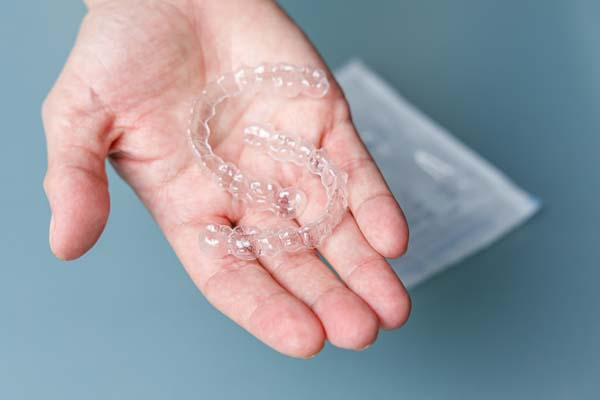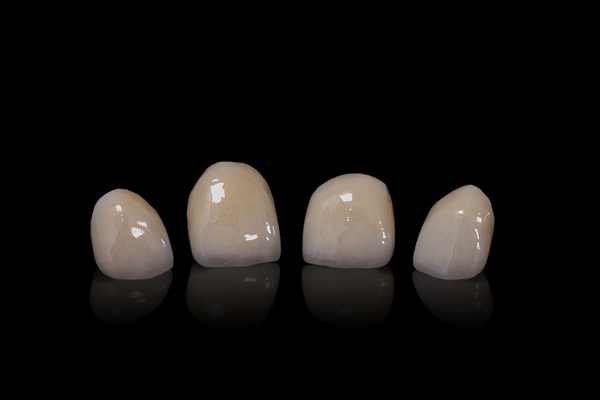Does Invisalign Really Work Without Causing Tooth Problems?

Are you thinking about getting Invisalign and wondering: Does Invisalign really work? Invisalign® is one of the most popular forms of clear aligner treatment. However, determining whether or not Invisalign really works is important if you are considering treatment. A common question is whether Invisalign causes any tooth problems, and we seek to answer that question in this review.
Determining whether Invisalign really works
The first step to determining whether Invisalign is right for you is to learn more about the treatment process and potential risks involved. The following is a complete review of whether or not Invisalign really works, including insights into who should consider Invisalign, potential risks, and how to prevent complications during treatment.
A review of Invisalign treatment
Invisalign uses clear aligners, which are transparent trays that pull teeth into ideal alignment. General dentists and orthodontists are qualified to carry out the treatment process. The process involves determining whether they are the best option for the patient, customizing the clear aligners, wearing the aligners for 20 to 22 hours each day (they are removable), and wearing a retainer after treatment is over to keep a straight smile in the long term.
Who should consider Invisalign?
Anyone who is not happy with how they look while smiling due to a misalignment of their teeth or jaw should consider orthodontic treatment. However, Invisalign is typically most appropriate for patients who have minor to moderate misalignments, and it may not be the best option for fixing more severe concerns. Generally speaking, Invisalign can address these issues:
- Teeth that are crooked
- Gaps between teeth
- Teeth that are overcrowded
- Jaw misalignments (i.e. underbite)
During a consultation visit with an Invisalign provider, the dental professional can explain the pros and cons of treatment and help you make an informed decision as to whether to start the Invisalign treatment process.
Potential risks with Invisalign
There are typically no serious threats to a patient’s dental health during Invisalign treatment, especially if they follow the treatment plan properly and protect teeth through good oral hygiene. However, if the patient fails to keep their clear aligners cleaned and rinsed off, then food particles and bacteria can get trapped between teeth and the aligners, which can increase the risk of tooth stains, dental cavities, and other oral health concerns.
How to prevent tooth problems during Invisalign treatment
Oral health concerns can develop if the patient does not care for their teeth properly through good oral hygiene. In addition to keeping the aligners clean, patients should also follow a consistent and thorough brushing and mouthwash routine, along with reducing the consumption of foods that may contribute to poor oral health, such as coffee, tea, soft drinks, and foods that are high in sugar.
Find out more about Invisalign
Our team helps patients through the entire Invisalign treatment process, from the initial consultation to ensuring the patient can keep their smile straight in the long term through aftercare and by wearing a retainer. If you would like to learn more about whether Invisalign really works, contact us today to arrange an initial visit.
Request an appointment here: https://www.ismiledentalcarenj.com or call iSmile Dental Care at (908) 810-1234 for an appointment in our Union office.
Check out what others are saying about our dental services on Yelp: Does Invisalign Really Work in Union, NJ.
Related Posts
When it comes to restoring damaged or weakened teeth, dental crowns provide an effective and lasting solution. Dental crowns are custom-made caps placed over a tooth to restore shape, size, strength, and appearance. Understanding the different types of dental crowns available can help patients make informed decisions about their dental care.Porcelain crowns are crafted entirely…
An emergency dentist provides immediate care for urgent dental issues. Dental emergencies can happen anytime, often causing pain or discomfort that cannot wait for a regular appointment. Recognizing the signs of a dental emergency helps patients seek the right care quickly and can prevent further complications and protect their oral health.A dental emergency calls for…
Seeing a preventive dentist is a vital part of your oral healthcare routine each year. However, many people skip this essential step because they do not want to spend time at a dental office. Fortunately, a preventive dentist provides many valuable services that can help your smile last a lifetime and stop future issues before…
Looking into the different teeth whitening options and wondering if you should choose the professional route? Even though it is easier than ever to whiten one’s teeth with over-the-counter options, generic whitening options tend not to be a good idea for many people. Ready to find out more about the professional teeth whitening route?Learning the…


